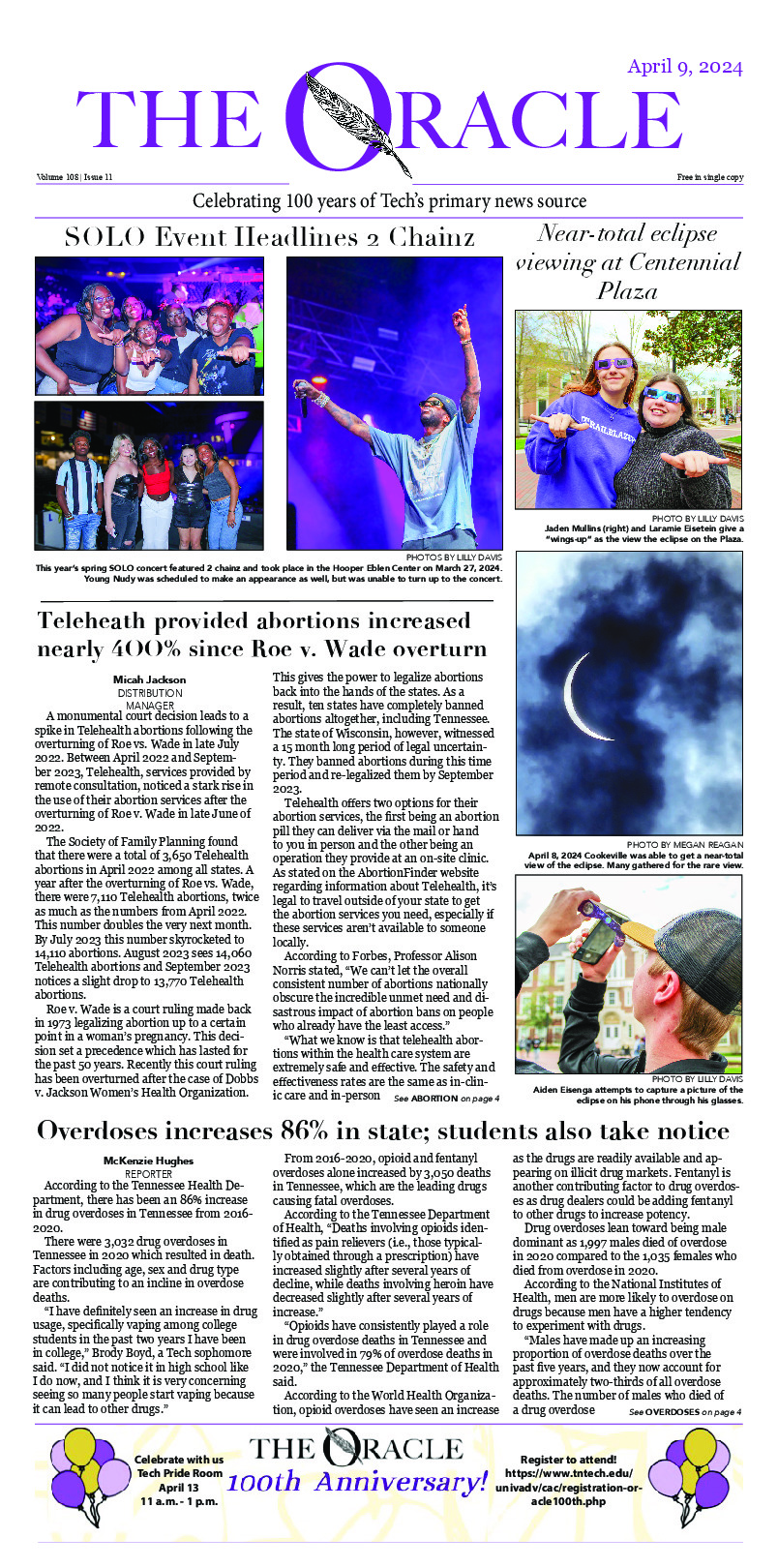
Photo by Kayla Lehman
The total solar eclipse offered a once-in-a-lifetime opportunity for thousands of people in Cookeville, but for one Tech University professor the event proved to be a childhood dream come true.
Reading Childcraft encyclopedias hooked Dr. Mary Kidd on physics, but her ties to NASA prompted her to organize an eclipse watch party at Tucker Stadium on Aug. 21 – an experience she described simply as “awesome.”
“There’s nothing quite like being with 10,000 of your closest friends and watching the eclipse,” said Kidd, an assistant professor who has taught physics at TTU for five years.
Planning Tennessee Tech Eclipse Fest also took on new meaning when her sister, a NASA scientist, introduced her to the Citizen CATE – or Continental-Atlantic Telescopic Eclipse – project that engaged students and their teachers in gathering scientific data during the total eclipse.
The watch party attracted nearly 10,000 people who wanted to witness a rare opportunity to view a total eclipse in Tennessee – an event 500 years in the making. The eclipse’s path of totality stretched 70-miles wide across the entire United States.
“It’s the most magical thing I’ve ever experienced. I wish everyone could experience that,” sophomore nursing major Kirsten Davidson said. “It was really nice that everyone just kind of stopped to watch [the eclipse] together, considering how crazy things have been here lately.”
As the moon’s shadow passed over the continent, specially equipped telescopes and cameras recorded not only the physical appearance of the sun and moon, but temperatures on earth as well by Citizen CATE participants. The experiment combined data from multiple points into 90 minutes of information that covered the complete path of totality, Kidd said.
Kidd said the eclipse proved a rare opportunity for scientists to study the sun’s corona – the aura of plasma that surrounds the sun – and solar flares.
“Being able to correctly predict solar flares is important,” said Kidd, since a flare aimed in Earth’s direction could potentially knock out a portion of a power grid. “We’re really bad at predicting them right now though. We just don’t have enough information.”
Witnessing such an event gave some students time to think about their existence.
“It was very eye opening about how great our world is and how, oh, that’s God,” Kristen Dillon, a junior accounting major said.
Although the eclipse provided scientists an opportunity for study and research – the natural phenomenon attracted the curious from all over the state, nation and world. Kidd said some Cookeville visitors came from Japan, Australia, Kuwait and the Netherlands.
The watch party at Tech included vendors outside the stadium selling food, eclipse merchandise and educational experiences explaining the technical information behind the solar event. Watchers also received a free pair of special glasses to safely watch the moon slowing cover the sun – from hiding just a sliver to totality and back again.
Visitors were encouraged to drop their glasses into designated recycle bins so the equipment could be used students in the physics and astronomy to view future solar events.
TTU alumni include two astronauts – Roger Crouch, class of 1962 and Barry Wilmore, class of 1985. Wilmore also serves on the TTU Board of Trustees.


